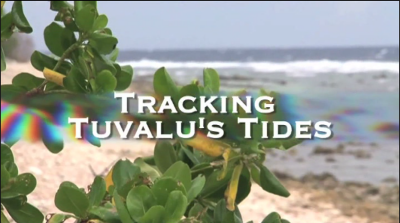The nation of Tuvalu is made up of nine low-lying islands scattered across the surface of the equatorial Pacific Ocean. These islands are home to over 11 thousand people and for them, the sea is a major source of food. However, the ebb and flow of the tides has also brought change to these islands.
The sea level monitoring station in Funafuti, the capital of Tuvalu, is one of 13 located throughout the Pacific region and undergoing maintenance. For the past 20 years it has been collecting and analysing vital data in tracking Tuvalu tides. These monitoring stations help to better predict and prepare for the extreme high tide which, in turn helps prevent great loss to personal property. Other vital services also depend on this important information e.g. infrastructure, large buildings etc.
The monitoring stations are part of the Australian Government- funded Pacific Sea Level Monitoring Project in partnership with the Australian Bureau of Meteorology’s Climate and Ocean Support Program, Geoscience Australia, Pacific Island Governments and the Secretariat of the Pacific Community’s Geoscience Division (GSD).
Click "Read More" below to watch video.






